
Basement membrane
All epithelia rest on a basement membrane, which consists of two components, the basal lamina, secreted by epithelial cells, and a reticular lamina, secreted by fibroblasts in the underlying connective tissue. The basal lamina is, in turn, subdivided into lamina lucida and lamina densa. Additional studies have shown that the presence of the lamina lucida results from a fixation-shrinkage artifact of the tissue. The clear space does not exist in life and thus the lamina densa lies directly adjacent to the plasma membrane. Serosa 15,000x
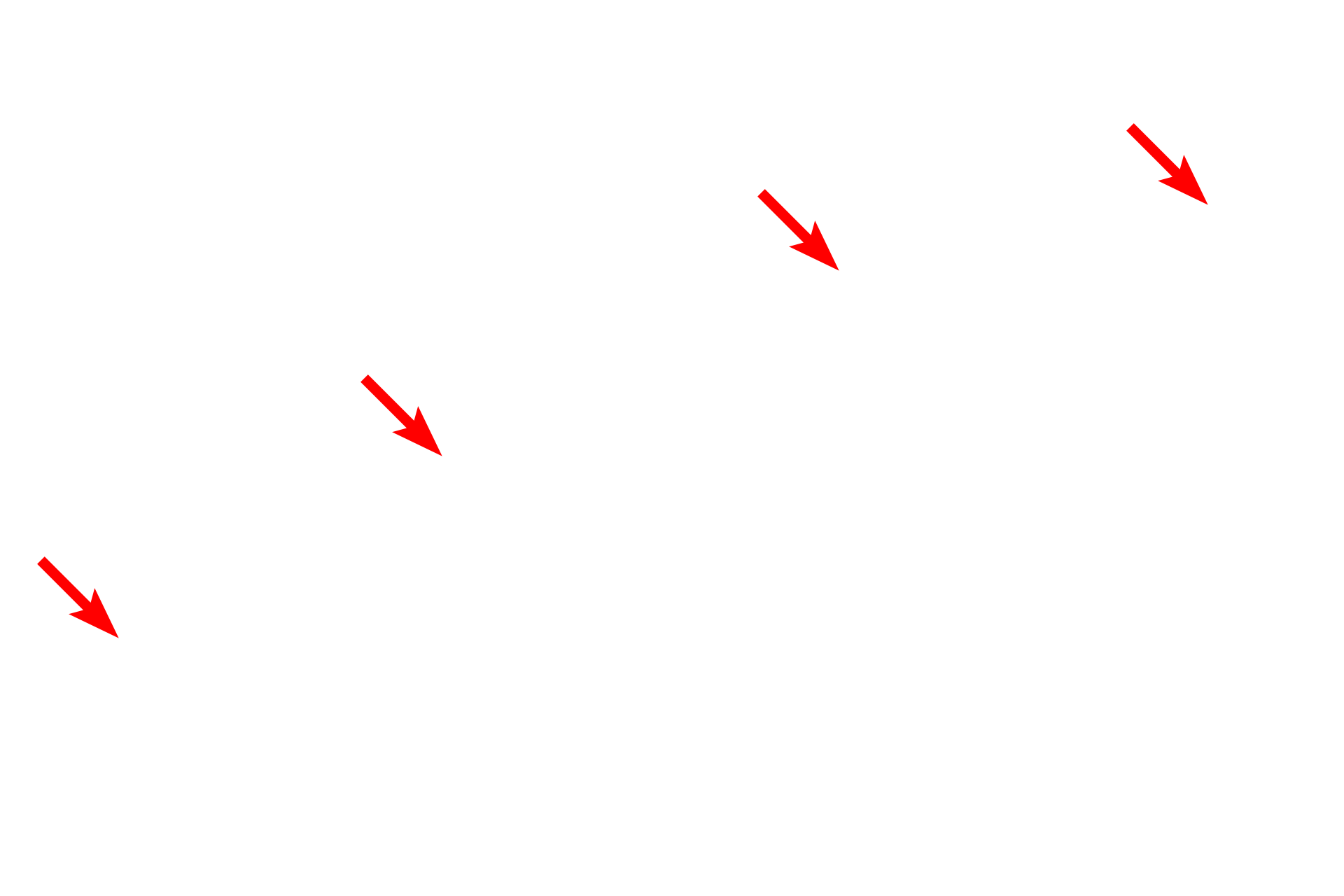
Simple squamous epithelial cell
All epithelia rest on a basement membrane, which consists of two components, the basal lamina, secreted by epithelial cells, and a reticular lamina, secreted by fibroblasts in the underlying connective tissue. The basal lamina is, in turn, subdivided into lamina lucida and lamina densa. Additional studies have shown that the presence of the lamina lucida results from a fixation-shrinkage artifact of the tissue. The clear space does not exist in life and thus the lamina densa lies directly adjacent to the plasma membrane. Serosa 15,000x

Nucleus
All epithelia rest on a basement membrane, which consists of two components, the basal lamina, secreted by epithelial cells, and a reticular lamina, secreted by fibroblasts in the underlying connective tissue. The basal lamina is, in turn, subdivided into lamina lucida and lamina densa. Additional studies have shown that the presence of the lamina lucida results from a fixation-shrinkage artifact of the tissue. The clear space does not exist in life and thus the lamina densa lies directly adjacent to the plasma membrane. Serosa 15,000x
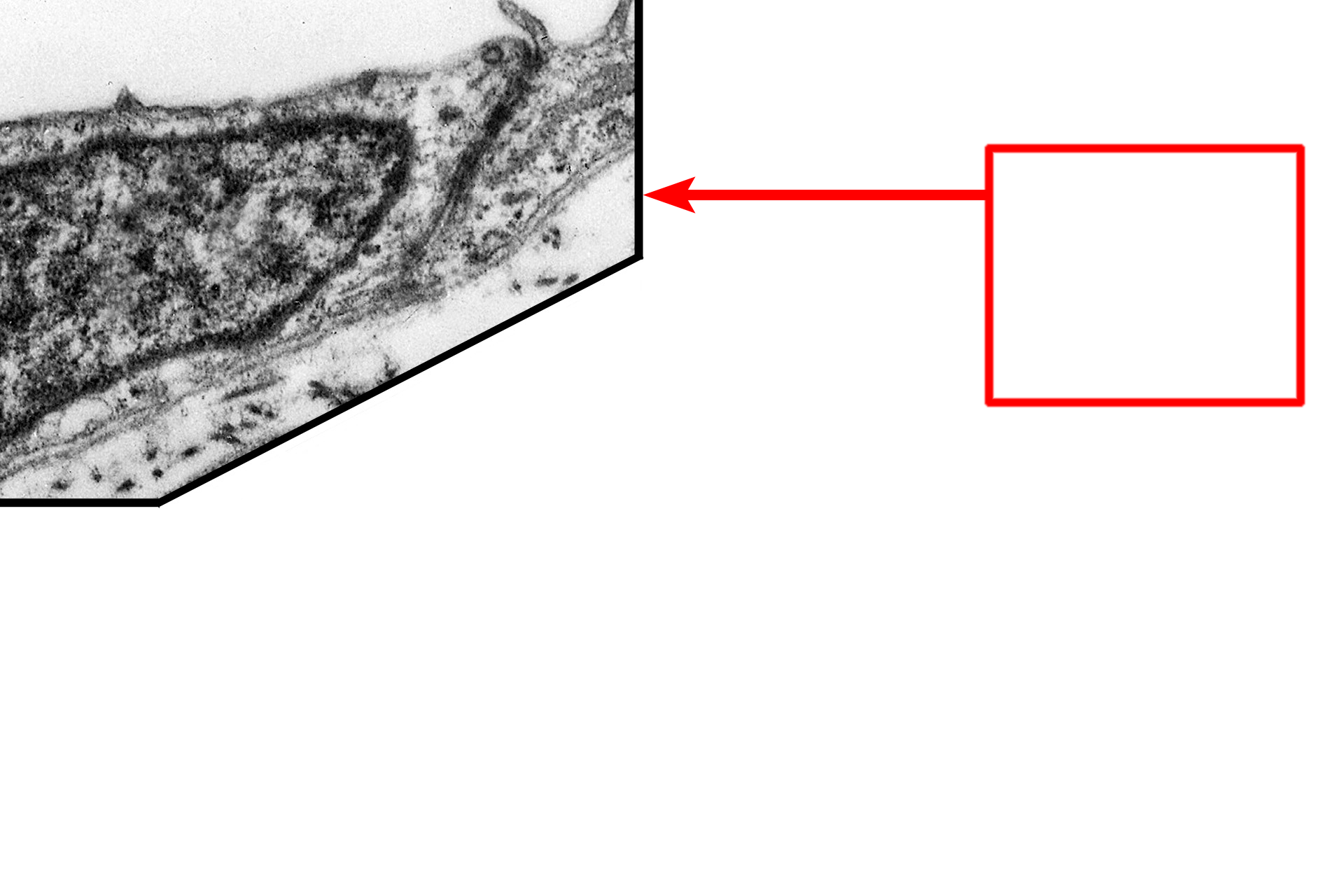
Inset (higher magnification)
All epithelia rest on a basement membrane, which consists of two components, the basal lamina, secreted by epithelial cells, and a reticular lamina, secreted by fibroblasts in the underlying connective tissue. The basal lamina is, in turn, subdivided into lamina lucida and lamina densa. Additional studies have shown that the presence of the lamina lucida results from a fixation-shrinkage artifact of the tissue. The clear space does not exist in life and thus the lamina densa lies directly adjacent to the plasma membrane. Serosa 15,000x
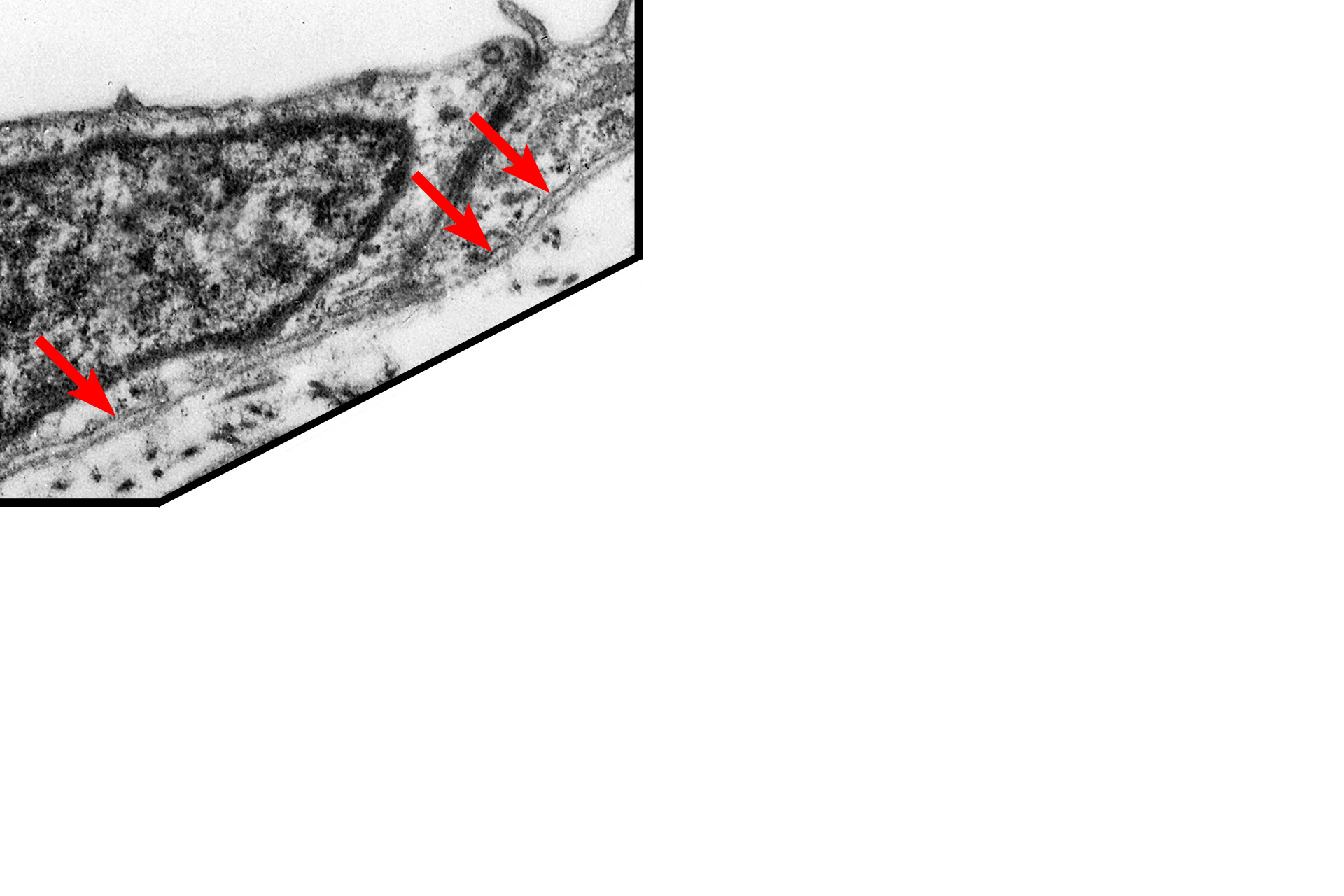
Plasma membrane
All epithelia rest on a basement membrane, which consists of two components, the basal lamina, secreted by epithelial cells, and a reticular lamina, secreted by fibroblasts in the underlying connective tissue. The basal lamina is, in turn, subdivided into lamina lucida and lamina densa. Additional studies have shown that the presence of the lamina lucida results from a fixation-shrinkage artifact of the tissue. The clear space does not exist in life and thus the lamina densa lies directly adjacent to the plasma membrane. Serosa 15,000x
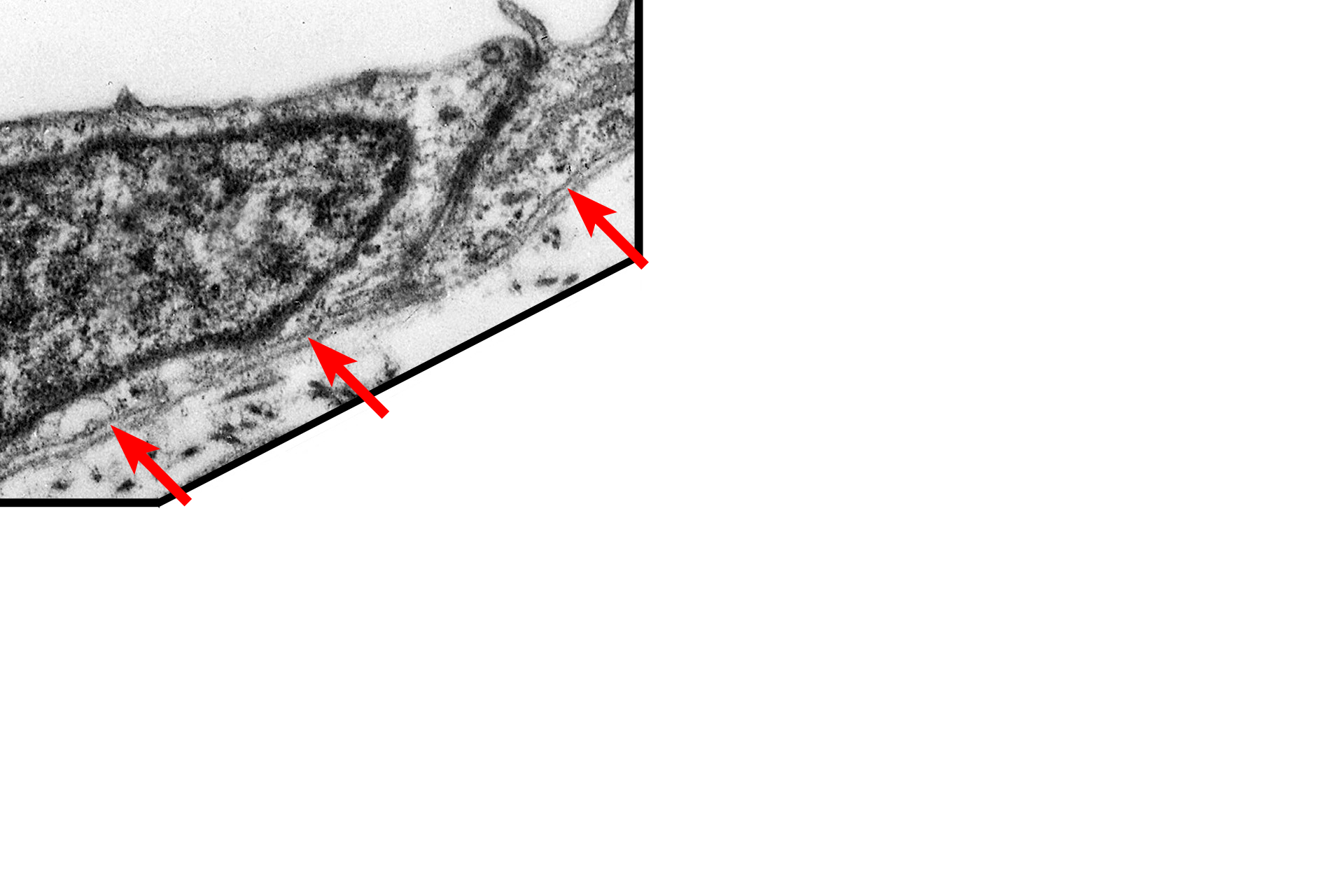
Lamina lucida
All epithelia rest on a basement membrane, which consists of two components, the basal lamina, secreted by epithelial cells, and a reticular lamina, secreted by fibroblasts in the underlying connective tissue. The basal lamina is, in turn, subdivided into lamina lucida and lamina densa. Additional studies have shown that the presence of the lamina lucida results from a fixation-shrinkage artifact of the tissue. The clear space does not exist in life and thus the lamina densa lies directly adjacent to the plasma membrane. Serosa 15,000x
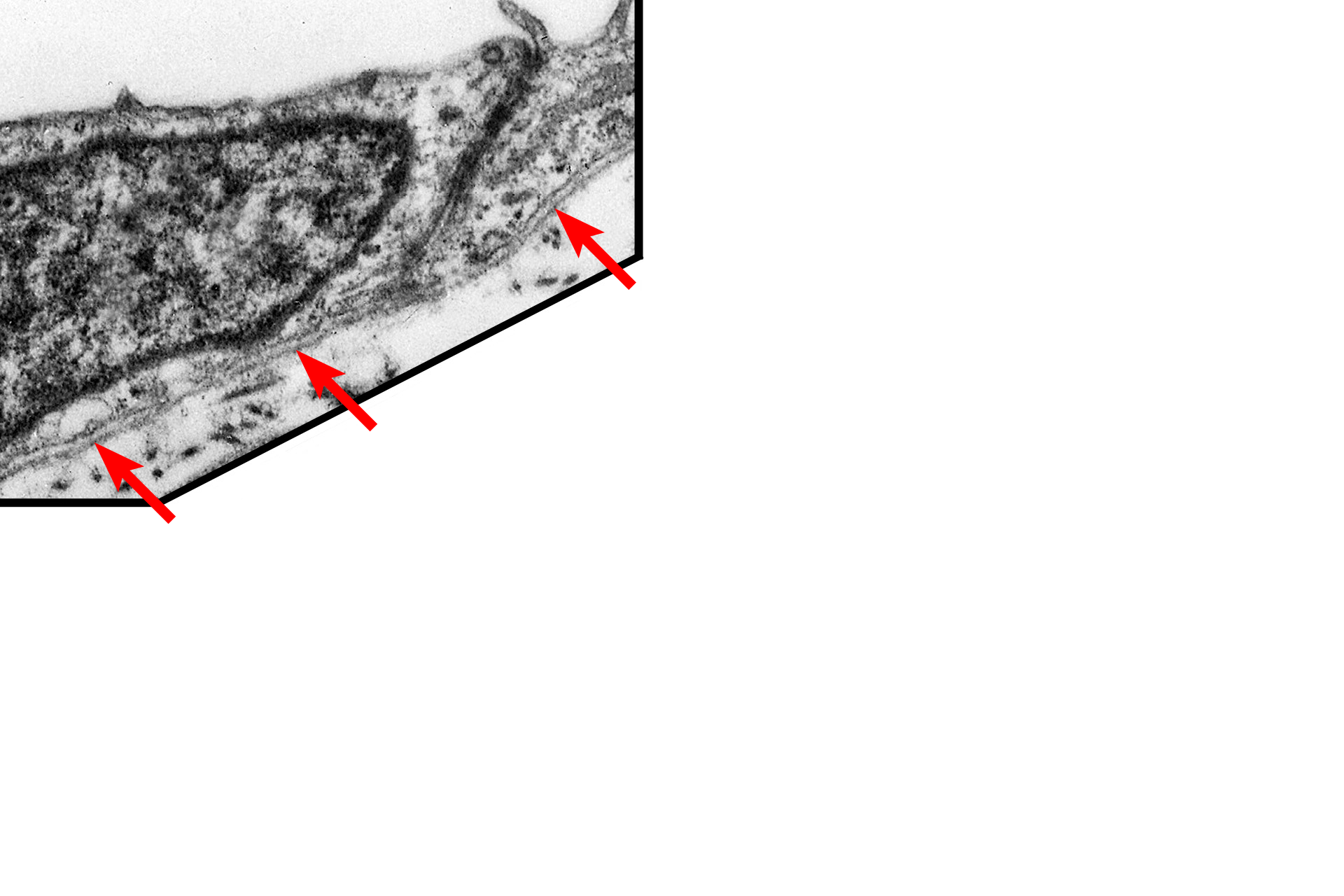
Lamina densa
All epithelia rest on a basement membrane, which consists of two components, the basal lamina, secreted by epithelial cells, and a reticular lamina, secreted by fibroblasts in the underlying connective tissue. The basal lamina is, in turn, subdivided into lamina lucida and lamina densa. Additional studies have shown that the presence of the lamina lucida results from a fixation-shrinkage artifact of the tissue. The clear space does not exist in life and thus the lamina densa lies directly adjacent to the plasma membrane. Serosa 15,000x
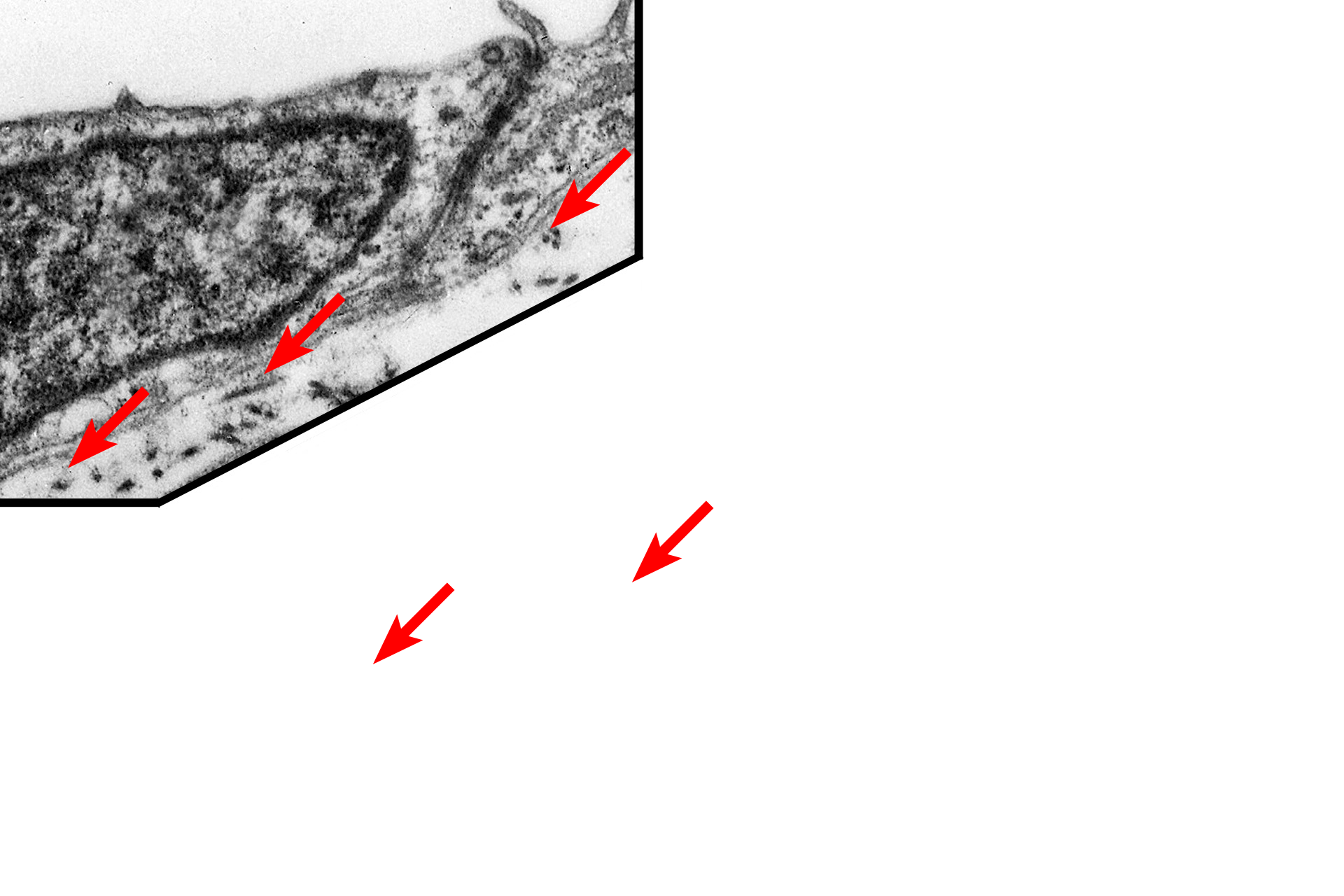
Reticular lamina
All epithelia rest on a basement membrane, which consists of two components, the basal lamina, secreted by epithelial cells, and a reticular lamina, secreted by fibroblasts in the underlying connective tissue. The basal lamina is, in turn, subdivided into lamina lucida and lamina densa. Additional studies have shown that the presence of the lamina lucida results from a fixation-shrinkage artifact of the tissue. The clear space does not exist in life and thus the lamina densa lies directly adjacent to the plasma membrane. Serosa 15,000x
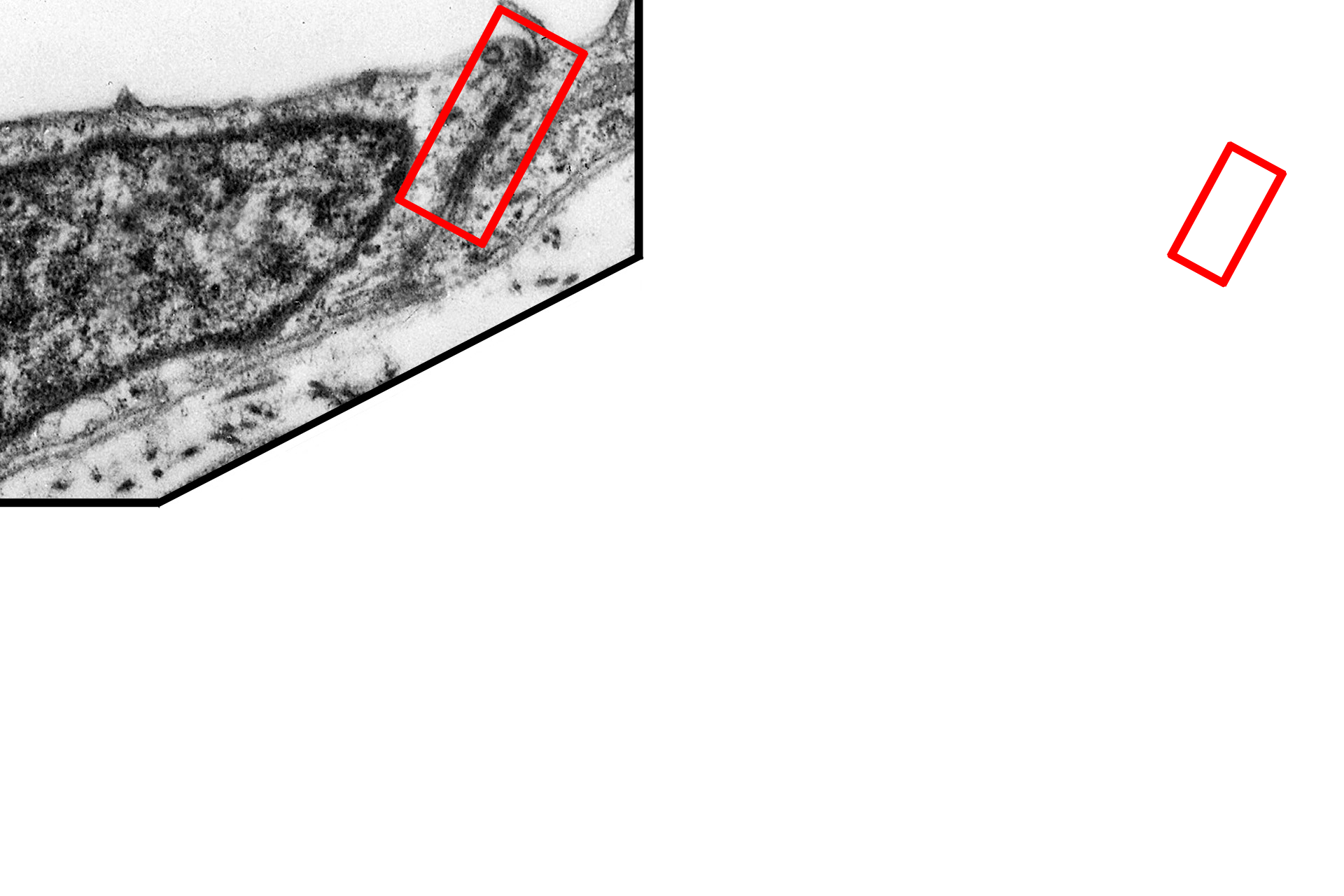
Junctional complex
All epithelia rest on a basement membrane, which consists of two components, the basal lamina, secreted by epithelial cells, and a reticular lamina, secreted by fibroblasts in the underlying connective tissue. The basal lamina is, in turn, subdivided into lamina lucida and lamina densa. Additional studies have shown that the presence of the lamina lucida results from a fixation-shrinkage artifact of the tissue. The clear space does not exist in life and thus the lamina densa lies directly adjacent to the plasma membrane. Serosa 15,000x
